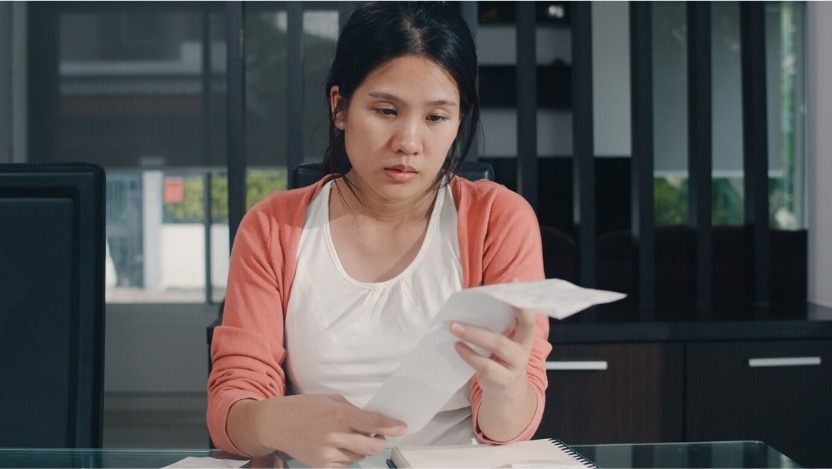Key Takeaways
- Debt consolidation simplifies payments by combining multiple personal loans into one, often with a lower interest rate.
- Debt settlement can reduce total debt by negotiating with creditors, though it may negatively affect your credit score.
- Bankruptcy provides a fresh start but can severely impact your credit score and may involve selling assets.
- Choosing the right debt relief option depends on factors like debt amount, income, credit score, and assets.
- Debt Redemption Texas Debt Relief provides tailored solutions, often offering a better alternative to bankruptcy with up to 40% lower fees than out-of-state services.
Debt Redemption Texas Debt Relief is a trusted debt relief company in Texas dedicated to helping consumers overcome their financial challenges. We offer personalized solutions including a debt settlement program exclusively offered only to Texans, a debt consolidation loan platform to shop for the best rates, and access to credit counseling solutions via our partners, to help you reduce and manage debt effectively. With a commitment to transparency and customer support, Debt Redemption Texas Debt Relief provides free consultations to guide you towards financial freedom.
As seen on Good Morning Texas, Texas Today, Great Day Houston, Great Day SA, We Are Austin and Daytime
The Basics of Personal Loan Debt Relief
What is Personal Loan Debt Relief?
Personal loan debt relief involves strategies to manage, reduce, or eliminate personal loan debt, often by lowering interest rates, reducing the amount owed, or extending repayment periods.
Types of Personal Loan Debt Relief
- Debt Consolidation: Combine multiple debts into a single loan with a lower interest rate.
- Debt Settlement: Negotiate with creditors to settle debts for less than the full amount.
- Bankruptcy: Legal process to eliminate or restructure debt under federal court supervision.
Importance of Debt Relief
- Reduces financial stress
- Improves financial stability
- Prevents severe credit score damage from missed payments or defaults
Personal Loan Debt Consolidation
How Debt Consolidation Works
Debt consolidation involves taking out a new loan to pay off existing debts. This new loan typically has a lower interest rate and combines multiple personal loan debts into one monthly payment, making it easier to manage finances and stay on top of payments.
Types of Debt Consolidation Loans
- Personal Loans – Unsecured loans used to pay off multiple debts.
- Home Equity Loans – Secured loans using your home, often with lower interest rates.
- Balance Transfer Credit Cards – Offer low or 0% interest rates for a limited time.
Benefits and Drawbacks of Debt Consolidation
| Benefits | Drawbacks |
| Simplified payments with one monthly payment | May require good credit to qualify for favorable terms |
| Lower interest rates than high-interest debts | Longer repayment periods can lead to paying more interest over time |
| Can improve credit score with on-time payments |
Personal Loan Debt Settlement
How Debt Settlement Works
Debt settlement works by negotiating with your creditors to accept less than the full amount owed. This can be a good option if you’re struggling to make payments and need immediate relief.
Benefits and Drawbacks of Debt Settlement
| Benefits | Drawbacks |
| Debt settlement reduces the total amount owed by allowing you to pay less than the original balance. The future interest savings alone is can be substantial. | Debt settlement can lower your credit score, as creditors may report the settled debt as “paid in full for less than the full balance,” or similar. |
| It helps avoid bankruptcy, offering a way to manage debt without bankruptcy, taking on more debt, or risking secured assets such as your primary residence. | Suspending payments during negotiations may result in fees and added interest, increasing the total debt amount, but this is factored as part of the settlement. |
| The process provides quicker relief compared to making minimum payments, as settled debts are resolved faster. | Negotiating with creditors is time-consuming, often taking several months to finalize agreements. |
Bankruptcy as a Debt Relief Option

Types of Bankruptcy
- Chapter 7: Involves liquidating assets to pay off debts, with remaining debt typically discharged.
- Chapter 13: Involves creating a repayment plan over three to five years, allowing you to keep your assets while paying creditors.
Eligibility for Bankruptcy
- Chapter 7: Requires passing a means test, comparing your income to the state median.
- Chapter 13: If your income is above the median, you may qualify for Chapter 13 instead of Chapter 7.
Process and Timeline
- File a petition with the bankruptcy court, listing your income, expenses, assets, and debts.
- Chapter 7: A trustee oversees asset liquidation, and the process usually takes three to six months.
- Chapter 13: You propose a repayment plan, typically lasting three to five years.
Impact on Credit Score
- Chapter 7: Remains on your credit report for up to 10 years.
- Chapter 13: Remains on your credit report for up to 7 years.
Rebuilding credit is possible over time by making on-time payments and keeping credit utilization low.
Benefits and Drawbacks of Bankruptcy
| Benefits | Drawbacks |
| Provides a fresh start by eliminating debt | Long-term negative impact on credit score |
| Relieves financial stress | Potential loss of non-exempt assets |
| Stops collection actions and creditor lawsuits | Difficulty obtaining new credit |
| Allows you to focus on rebuilding finances | Remains on credit report for 7-10 years |
Choosing the Right Debt Relief Option

Factors to Consider
- Amount of Debt: The total debt owed can influence your choice.
- Income and Expenses: Your payment capacity is crucial in determining the best option.
- Credit Score: Weigh the impact of each option on your credit score and future financial opportunities.
- Assets: Consider if you have assets like a home or car that you want to protect.
- Timeframe: Think about how quickly you need relief and the time commitment you’re willing to make.
For example, bankruptcy may be best for those with high debt and limited income, while debt consolidation suits individuals with stable income who want to protect their credit score.
Seeking Professional Help
Working with a reputable professional like Debt Redemption Texas Debt Relief can help you understand debt relief options. We offer free debt settlement consultations to help you identify the best path for your financial situation, protecting you from scams and predatory practices.
Comparing Options
| Option | Pros | Cons |
| Debt Consolidation | Lower interest rates, simplified payments, potential credit score improvement | Requires good credit, extended repayment period |
| Debt Settlement | Reduces total debt, avoids bankruptcy, quicker relief and affordable payments | Impacts credit score |
| Bankruptcy | Eliminates or restructures debt, legal protection | Severe credit score impact, potential asset loss and public record. |
Action Plan
By understanding the different debt relief options available, you can make an informed decision that best suits your situation.
- Assess your financial situation, including total personal loan debt, income, and expenses.
- Research different debt relief options and consider the pros and cons of each.
- Consult with a professional, such as Debt Redemption Texas Debt Relief, for personalized advice and support.
- Develop a plan to address your debt, whether through consolidation, settlement, or bankruptcy.
- Stay committed to your plan and make consistent, on-time payments to rebuild your financial health.
How Debt Redemption Texas Debt Relief Can Help
At Debt Redemption Texas Debt Relief, we specialize in helping Plano residents manage personal loan debt through consolidation, settlement, and other strategies. As a specialist in Texas debt relief with over 20 years of experience, we offer debt settlement programs exclusively for Texans, often providing a much better alternative to bankruptcy.
Our services can help you resolve high-interest debt in as little as 12-60 months, and our fees are up to 40% less than out-of-state services. Program payments are often less than half compared to minimum credit card payments.
Visit Debt Redemption Texas Debt Relief for a free consultation and take the first step toward financial freedom.
Book your free consultation
Frequently Asked Questions (FAQ)
What is the difference between debt consolidation and debt settlement?
Debt consolidation combines multiple debts into one loan with a lower interest rate, simplifying payments. Debt settlement negotiates with creditors to reduce the total amount owed, often resulting in savings. The right choice depends on your financial situation and goals.
How does bankruptcy affect my future financial opportunities?
Bankruptcy severely impacts your credit score and remains on your report for up to 10 years. It may make obtaining credit, renting, or securing employment difficult, but the effect lessens over time as you rebuild your credit.
Can I negotiate debt settlement on my own?
Yes, but it can be challenging and time-consuming. Working with a company like Debt Redemption Texas Debt Relief simplifies the process and may lead to better results due to their experience and relationships with creditors.
What are the costs associated with debt relief services?
Costs vary depending on the service. Debt consolidation loans may have origination fees, while debt settlement companies often charge a percentage of the settled debt. Out-of-state companies often charge 25 or even 29% of your debt as a negotiation fee. Debt Redemption charges 15%, which is often 40% lower than competitors.
Is debt consolidation or settlement better for my credit score?
Debt consolidation may improve your credit score if you make timely payments. Debt settlement, on the other hand, can negatively impact your credit because settled debts are marked “paid in full for less than the full amount,” or similar.
What are the long-term effects of bankruptcy?
Bankruptcy significantly affects your credit score for up to 7-10 years. It can make securing credit, renting, or even employment difficult for some positions. However, it gives a fresh start by eliminating or restructuring overwhelming debt.
